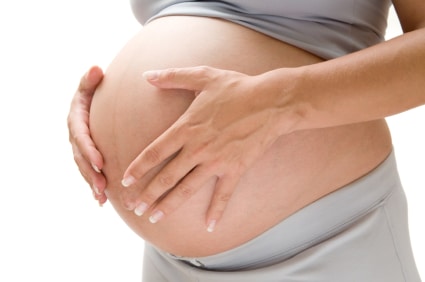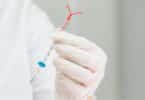Sleep apnea isn’t good for anyone, but a new study says it may be even riskier for a pregnant woman and her unborn child.
Classified by intermittent pauses in breathing, sleep apnea is most commonly caused by a blocked airway. While almost anyone can have the disorder(either from enlarged tonsils or excess skin in the windpipe), obesity increases the risk because fatty tissue can grow inside the throat, narrow the inside of the windpipe, and block the airway.
Prolonged, untreated sleep apnea can have serious adverse effects on an individual – everything from chronic fatigue to heart complications. But to date, no one has determined what, if any, health complications accompanied sleep apnea in pregnant women. So, Dr. Judette Louis, an assistant professor of obstetrics and gynecology at the University of South Florida, and her research team took a look at how sleep apnea can affect a mother and her unborn child.
For the study, researchers analyzed the information on 175 pregnant women with a high Body Mass Index(BMI). All of these women had been tested for obstructive sleep apnea on a portable device at home; approximately 15 percent of them ended up being diagnosed with sleep apnea.
When comparing the women diagnosed with sleep apnea with those that did not have the disorder, researchers found that those with sleep apnea were most likely to be heavier and have problems with chronic high blood pressure. What was most concerning, however, was that there were certain complications linked to sleep apnea during pregnancy through this study.
According to the researchers, about 65 percent of the women with sleep apnea ended up having a cesarean section. This was compared to only 33 percent of the women without sleep apnea. Additionally, 42 percent of the women with sleep apnea ended up being diagnosed with preeclampsia during their pregnancy. Again, this was compared to just 17 percent in those that did not have sleep apnea.
The only data that remained similar between the two groups had to do with the number of premature births; researchers say that the rate was fairly even for all of the women. There was, however, a very disturbing figure: 46 percent of the mothers with sleep apnea had children admitted to the neonatal intensive care unit; this was compared to just 18 percent in the women that did not have sleep apnea.
Researchers did admit that the high rate of NICU admissions may have had more to do with the higher rate of cesarean sections. However, women with sleep apnea should be aware of the increased risk of intensive care that may be needed for their babies. Actually, what would be even better was if there was a way for these mothers to be treated for their condition, either during or before pregnancy.
The best way to reduce the risk of obesity-related sleep apnea is to treat it before pregnancy, particularly with weight loss. Of course, weight loss can sometimes be difficult. There are surgical interventions for sleep apnea, but surgery comes with its own set of risks and it is often saved as a last resort. Breathing machines can help alleviate symptoms, but it does not eliminate the problem. Additionally, not all sleep apnea sufferers are consistent with the use of the breathing machines.
It is also worth noting that this study only analyzed the effects of sleep apnea on women with a higher than average BMI; it is still unknown whether or not the disorder would have the same effect on a pregnant woman who are not significantly overweight.
Related Articles:
- Unaware Of Her Pregnancy, British Soldier Gives Birth On The Frontline
- Vitamin D During Pregnancy Essential for Brain Development of Fetus, Researchers Say
- Doctors Perform First Mother-to-Daughter Womb Transplant







